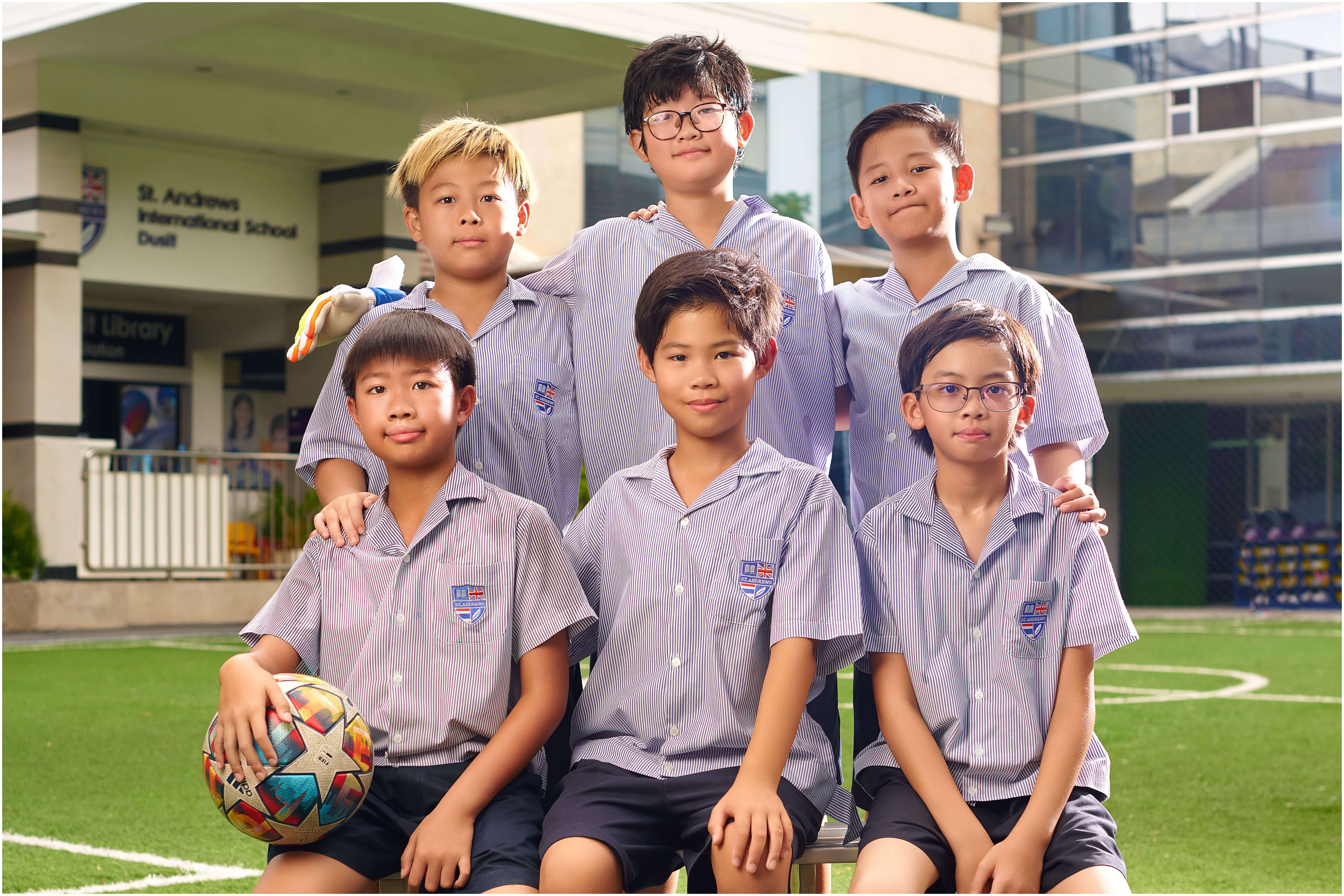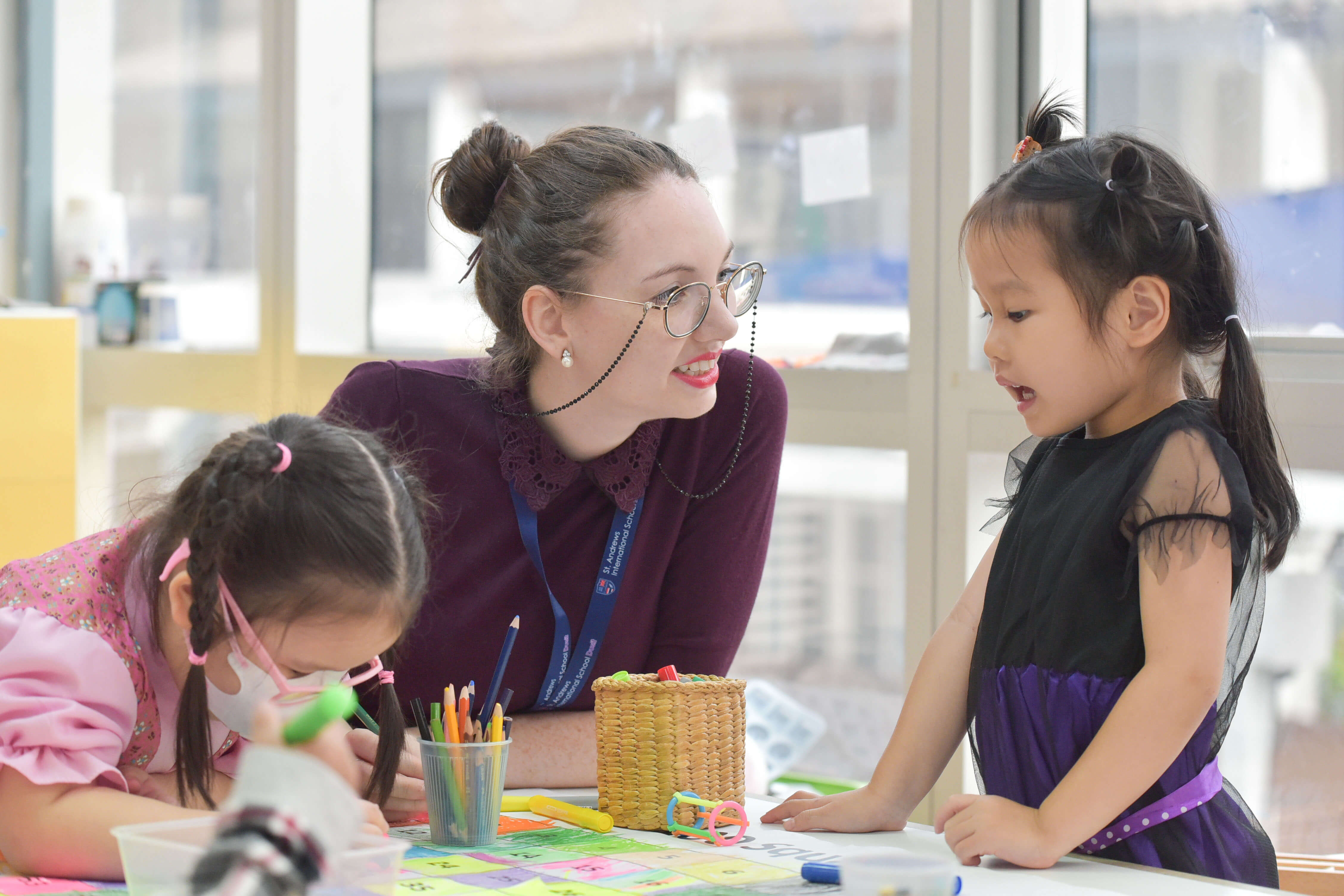As an inclusive school, we pride ourselves on providing an exciting, engaging and tailored curriculum, which enables individual students to make excellent progress and achieve their full potential.
Assessment

The Aim:
The aim of assessment at St. Andrews International School Dusit is to provide information on student learning in order to improve student progress and attainment and contribute to the effectiveness of our teaching and learning programmes.
Assessment complements and assists teaching and learning; it plays an integral part in each teacher’s planning and enables the evaluation of current practice as well as pupil achievement. High quality formative assessment is an essential part of teaching and learning at Dusit. It ensures a whole school approach to the provision of an excellent education for all children at Dusit and enables teachers to deliver education that best suits the needs of their pupils. The process of assessment is central to helping pupils to progress and fulfil their full potential. It is also necessary to provide a framework to ensure that learning objectives can be set and used to inform lesson planning, resources and support.

Primary:
External Assessments
- During term one and two, children from Y2 – Y6 will complete the online New Grouping Reading Test (NGRT) to provide a standardised reading score. Y1 students complete a paper version in term two only. The results of this help teachers to plan effectively based on the needs of the class and of individual students who may require additional support.
- Students from Y2 – Y6 complete GL progress tests in English, Maths and Science at the end of each academic year. This standardised assessment allows us to compare our student attainment with that of students of the same age around the world.
- In addition to subject specific assessments, Dusit also assesses student capabilities and potential using CAT4 (Cognitive ability tests) in Y3 and Y5. This helps determine not only where students can be developed further, but also our high-fliers.
- For the languages of Mandarin and French, children have the opportunity of working towards the YCT or DELF language qualifications respectively.

Early Years:
EYFS teachers continuously assess understanding and progress through observing children’s play in the early years environment. These observations focus on the areas of learning from the early years foundation stage framework standards which are used in the UK and informs the next steps as well as the provision and resources which are provided.
Key Assessment times:
Shortly after starting in our nursery class, the class teacher will meet with parents to review the child’s progress and development using the 2 year old check.
At the end of the Reception year, observations of play are used to assess the children against the Early Learning Goals, which are taken from the early years framework.

Definitions:
- Formative Assessment, is an ongoing process which measures the children’s learning, informs our teaching, short-term planning and supports the personalisation of learning.
- Diagnostic Assessment, involves ongoing measures to diagnose a child’s individual learning profile.
- Summative Assessments, measure the children’s learning at a certain point in time, and show how much value has been added to the children’s learning. We also use them to track the children’s progress through the school and target underachievers.
Admissions Handbook 2023-2024
Also check out
Let us show you more!
Discover a world of opportunities under one roof as this truly international education offers a personalised curriculum tailored to empower your child's future path.




